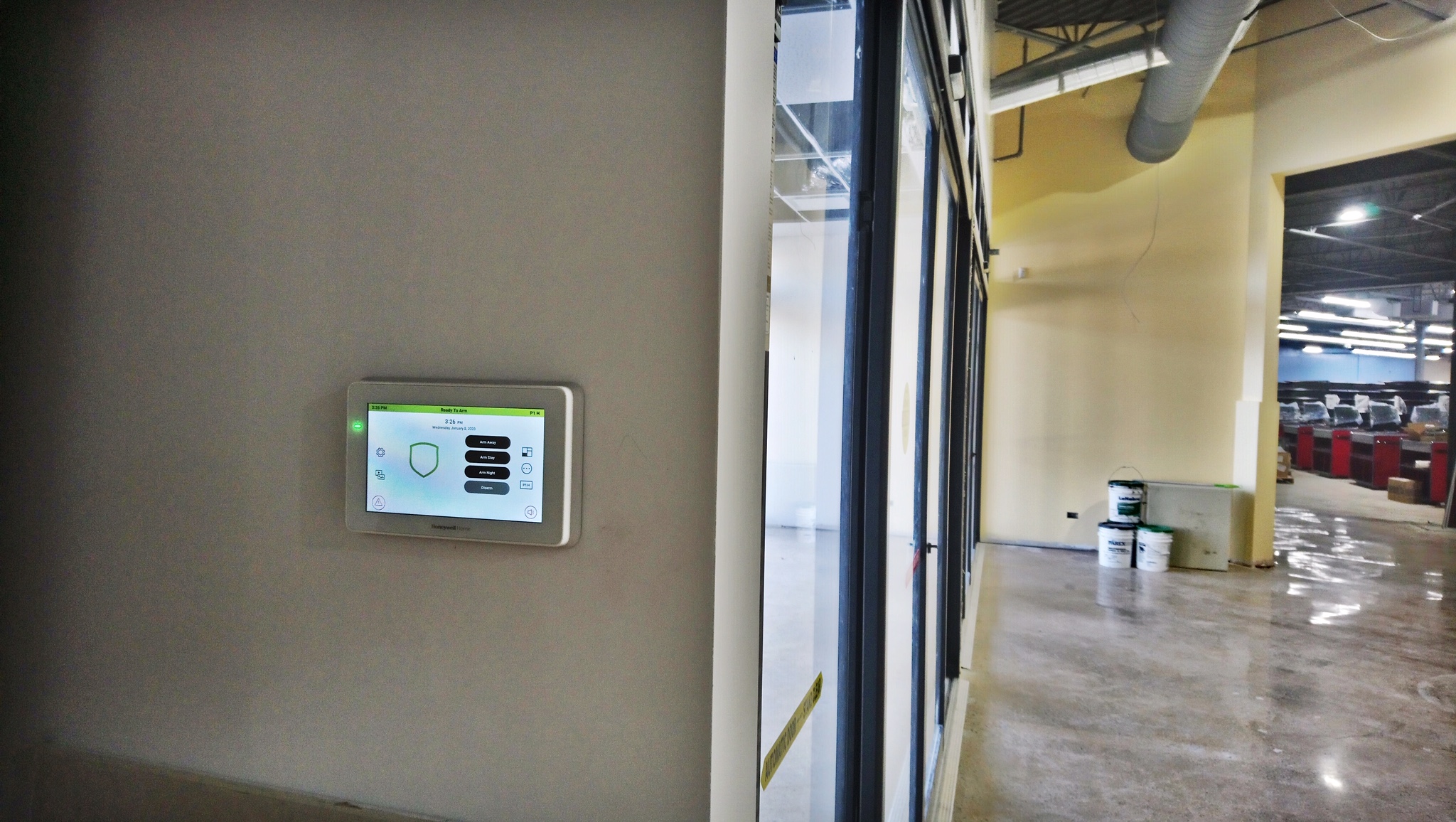
Pros and Cons of a DIY Alarm System
Pros and Cons of a DIY Alarm System
Editor’s note: This post was originally published in November 2016 and has been updated for freshness, accuracy, and comprehensiveness.
The housing market is booming.
The need to work remotely and spend more time at home has increased the demand for larger living spaces. Additionally, more Americans are buying or refinancing their homes because of the current low interest rates on mortgages.
This could also be the reason why the DIY industry is gaining momentum. The home security systems market alone ‘was valued at USD 53.6 billion in 2020 and is expected to reach USD 78.9 billion by 2025.’
Instead of slowing down during the pandemic, it is reported that homeowners ‘have continued to spend money on home improvements’ while paying special attention to DIY alarm systems.
A DIY alarm system might seem like an attractive option. But, how can you decide if it’s a good alternative for your property?
It really depends on your security needs and how tech-savvy you are.
When you first visit a DIY company website, you might notice that they place most of their attention in the buying process. This is because they aren’t required to obtain a license for installations. In a sense, they are like many other companies that only sell you a product.
This doesn’t necessarily mean bad business. However, it does mean that the company you choose has to be transparent and have a solid foundation. Not all security companies abide by the same values and some advertising of DIY alarm systems can be misleading.
But before you jump into reading reviews and comparing products, the following tips can help you decide if a DIY system is a good fit for you and your home.
Where does a DIY Alarm System perform best?
A DIY alarm system works best for small spaces like apartments or flats. An apartment usually has less doors and windows to secure, therefore, you will likely also need less motion sensors.
A second reason is that most wireless systems have to be within a certain distance of their wireless network. This is not difficult in small spaces but becomes more complicated in a multi-level building.
The Pros of Purchasing a DIY Alarm System
Installation is economical.
A professional installation tends to cost more. This is because of the high quality of the system and the personalized service you’ll receive if you hire a full-service company. This is why one of the main appeals of a DIY alarm system is that if you install it yourself, you’ll save big bucks.
This choice will not only give you the advantage of getting your system sooner but you’ll be saving on initial costs. Nonetheless, it’s recommended to first research the DIY company of your preference to make sure it is well-established. This is important because a DIY system allows you to add other products in the future so you don’t have to buy it all at once.
For example, if you first want to buy an alarm system and a year later a video doorbell, you’ll be able to integrate both systems as long as you buy them from the same company.
It’s also important to ask about the equipment’s warranty and return policy. Since not all DIY alarm systems are good quality, a good return policy can protect you if the system doesn’t work well or it isn’t what you expected. Only because the system fits your budget, it doesn’t mean it will also fit your needs.
Take your DIY Alarm System Wherever you go
You’ll be Free from Annual Contracts
Most professional security companies require that you sign a 1 or 2 year contract of alarm monitoring services. This means that as soon as your alarm is installed, it will be monitored by a central station. In case of an emergency, the monitoring station will call you to verify if they need to alert the authorities.
In contrast, with a DIY alarm, you’ll have the task of self-monitor your security system. This means that your alarm system will not be monitored by a central station and when the alarm is activated, it’ll be up to you to alert the authorities. You’ll also be free from a monthly monitoring fee and responsible for any repairs the system will require in the future.
The Cons of Purchasing a DIY Alarm System
DIY Installations Can Be frustrating
Limited Technical Support & Maintenance Madness
What can you do if your DIY alarm system malfunctions?
A) Call the company who sold you the equipment
B) Search the Google bar and try to fix it yourself
C) Continue to use the system even though it doesn’t work well
If you decide to call the company who sold you the DIY system, you might be on-hold for long periods of time. It can be frustrating to wait to get an answer via text or email when you are worried about your family’s safety.
If you opt to try to fix the system yourself, it can also be time consuming and frustrating. And there is still not a guarantee that it’ll work!
Remote Access Can be Hacked.
Remote access is not only convenient but usually a secure way to control your alarm system. Nonetheless, when your options to customize your alarm system are limited, it makes your system more vulnerable to hacking.
Once a hacker has your username and password, they can use it to disable your alarm system. Additionally, hackers can get very creative. A Forbes’ article described how a popular alarm brand was disabled with magnets and tape.
What can you do to minimize the chances of being hacked?
If possible, customize your systems’ settings. Take advantage of any security features your DIY system provides.
Editor’s note: This post was originally published in November 2016 and has been updated for freshness, accuracy, and comprehensiveness.
